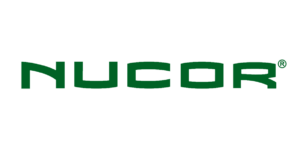Avoiding Antitrust Fines, Damages and Jail Time
With penalties making news both at home and abroad, manufacturers and distributors must understand how to avoid the principal antitrust traps and recognize specific conditions where management should consult knowledgeable antitrust counsel.
Posted: February 2, 2015
The vigor with which the antitrust laws are enforced in the United States is evidenced by the frequency with which the business news media report convictions or guilty pleas for price-fixing or other forms of collusion among competitors, merger challenges and private or governmental challenges to business conduct. In addition to the antitrust enforcement authority of the U.S. Department of Justice and of the Federal Trade Commission, the Attorneys General of the various states pursue their own antitrust cases, including actions to recover damages for the state itself or on behalf of its citizens.
Moreover, there has been a dramatic increase in the number of foreign countries which have enacted and enforce their own antitrust laws. And while the United States used to be the lonely advocate for treating collusion as a crime, additional countries have recently imposed criminal penalties upon such conduct.
The purpose of this article is to assist manufacturers and distributors in understanding how to avoid the principal antitrust traps and in recognizing the specific conditions in which company management needs to consult knowledgeable antitrust counsel.
COLLUSION
Collusion is the most serious type of antitrust problem, because it is the only antitrust violation that is enforced through criminal prosecution, including prison sentences and fines for complicit individuals as well as fines for the company and liability for overcharge damages in follow-on civil litigation.
Collusion is simply an agreement between two or more competitors to fix prices, to allocate markets or customers, or otherwise to restrain competition between them. While the Department of Justice formerly used to prosecute only one individual per company, recently it has often prosecuted two or more individuals within the same company who were significantly involved in the collusion.
The following are all forbidden forms of collusion:
- Agreeing with one or more competitors to maintain a particular price for a particular product;
- In bid situations, to agree with one or more competitors not to submit a bid, or to agree which company will submit the lowest bid, or to agree on the prices the various bidders will submit. Nor may a bidder contact a competitor to determine a “safe” bid that will be high enough to avoid winning the unwanted work;
- Agreeing with one or more competitors that one company will refrain from selling to a particular customer, or refrain from selling in a particular territory or to a particular industry;
- Agreeing on the terms under which you will sell a product to a customer (such as credit limits or payment terms) or agreeing to restrain capacity;
- Agreeing with one or more competitors to price so as to maintain an agreed profit margin;
- Agreeing with one or more competitors to use a particular pricing formula; or
- Agreeing to offer a particular book price, even if all transactions are generally conducted at discounts from book price.
It should be noted that a company may lawfully decide unilaterally to take any of these actions. It can, on its own, decide to raise its prices, or to adopt a particular pricing formula or not to sell to a particular customer. The significant part of the crime is agreeing with a competitor to do so. However, anyone so foolish as to think that they can get away with reaching a forbidden agreement because the competitor is a long-time friend who would never give evidence against you needs to realize that the Justice Department investigates these offences using the full panoply of law enforcement tools, including wire taps and secret recordings by one of the participants in a conversation.
Most damaging of all, however, is that fact that if your friend is colluding with you, they are probably colluding with another as well, in some market. And testifying against you is likely to be the only way for them to avoid or shorten their own prison sentence. Furthermore, customers can and do complain to the government when they suspect unlawful anticompetitive behavior – this is often the catalyst for a government investigation.
Although illegal collusion requires the existence of an agreement between two competitors, no formal or written or even express agreement is required. A wink or a nod is sufficient. All that is required is that a jury may reasonably conclude, from all of the conduct the circumstances, that two or more competitors reached a meeting of the minds regarding pricing or other competitive conduct.
Nor is it a defense to the charge of collusion that the resulting prices were fair, or even that it was the only way to avoid bankruptcy or going out of business. The agreement with a competitor is a per se unlawful offense.
To protect itself against involvement in unlawful collusion, the company should maintain a code of conduct that prohibits all forms of unlawful collusion. It should frequently conduct training on compliance with the anti-collusion laws, especially with executive, sales, marketing and pricing personnel.
Further, the company should create and educate all of its personnel on a system by which company personnel can discuss with company counsel evidence or suspicion that another employee (particularly a superior) is involved in collusion, while protecting the reporting employee from retribution by his superiors for disclosing his fears or suspicions.
INFORMATION EXCHANGES
Exchanges of competitively sensitive information which are likely to affect prices may be an antitrust violation, even if the parties do not agree to collude. Exchanges of information regarding prices recently charged in actual transactions are the type of information most likely to have an adverse effect on prices. Nevertheless, data on costs, output and capacity utilization may also have such an effect. (In addition, since such information is frequently exchanged among colluding competitors to monitor compliance with the agreed terms of collusion, the exchange may provide evidence of explicit price collusion.)
In addition to the type of information exchanged, the age of the information is a significant factor in determining the likely effect of any information exchange. The more recent the information, the more likely it is to have a forbidden effect on prices. Of course, in a modern free market economy, a firm’s access to relevant industry information can also have important pro-competitive effects that the antitrust laws would like to encourage, like benchmarking the efficiency of the firm’s operations.
Accordingly, it is important that firms observe the following safeguards in accessing relevant information regarding competitors’ operations:
- The competitors should supply the information to an independent third party (such a consultant or a trade association), rather than routing information directly to one another;
- Only aggregated or average data should be supplied by the third party to the competing firms;
- The information-gathering must encompass enough participants that no category of published information allows any competitor to isolate any particular competitor’s data. Generally this requires at least five participants in each data category and that no single firm’s data dominates the category;
- Only historical data should be disseminated, usually at least six months old.
Trade Association Meetings. Although trade association meetings can be important sources for lawfully obtaining important information, they are, almost by definition, gatherings of competitors. As such, when the trade association meetings are followed chronologically by price increases, plant closings or reductions in output, it is frequently alleged that collusive agreements were formed at the trade association meetings. To obtain as much protection against such allegations as possible, each firm should take the following precautions:
- Evaluate the company’s purposes for attending the meeting, and be sure that it is worth the potential risk;
- Be sure that an agenda for the meeting has been approved in advance by knowledgeable antitrust counsel and the agenda is followed;
- Each trade association meeting should be attended by legal counsel capable of assuring that the meeting is limited to appropriate topics and recording that the meeting has done so;
- Avoid rump groups that may stray off into other topics (particularly during breaks and social events) and limit topics of conversation over meals or golf to the weather or sports!
DUE DILIGENCE
Due diligence related to mergers or acquisitions among competitors presents special problems concerning disclosure of competitively sensitive information. Information may lawfully be disclosed, pursuant to a confidentiality agreement restricting its use to advancing the transaction, provided that the disclosure is reasonably related to enabling the transaction to occur and the disclosure is not reasonably likely to affect prices or output in the market.
Of course, information regarding Company A is only reasonably necessary to the sale of Company A’s business. If Company A is being sold to Company B, no information regarding Company B’s operations need go to Company A unless Company A, or its shareholders, are being paid in stock or a similar interest in Company B. The timeliness of the information disclosure is also a part of deciding whether the disclosure is “reasonably necessary” to the transaction.
For example, it is ordinarily not reasonably necessary to disclose all of your contracts and contract prices to your competitor, at least until an examination of aggregated financial information shows that the two parties are at least in the same ballpark. Thus the disclosure of competitively sensitive information is customarily staged progressively as the parties get closer to firm agreement, with the most sensitive information being disclosed late in the process.
Some competitively sensitive information may have such a potential to effect prices in the market that the information should be made available only through a third party, such as a consultant, or through a Clean Team. A Clean Team is composed of employees of the acquiring party who have no responsibility for making or recommending pricing, sales or marketing decisions for the acquirer or for supervising those who do.
Pursuant to an agreement with the consultant or Clean Team, the detailed competitive information of the target firm is only made available to the consultant or the Clean Team. The consultant or Clean Team is obligated to maintain the confidentiality of the information disclosed by the target, except to provide specific aggregated data on issues that are necessary to the transaction.
For example, if it is relevant to the transaction for the potential acquirer to know the risk it is taking on with the target’s long term sales contracts, the target’s sales contracts could be produced to the consultant or Clean Team and the consultant or Clean Team could report by year that the target is obligated to sell X widgets at an average price of $Y, without disclosing the identity of particular customers or their contract prices.
HART SCOTT RODINO
The Hart Scott Rodino Antitrust Improvements Act requires that buyers and sellers in certain transactions (based principally upon the size of the transaction), each submit premerger notifications and wait until the expiration of a waiting period (usually 30 days) before completing the transaction. The waiting period allows the Department of Justice and the FTC to investigate any competitive effects of the transaction before it is closed, when returning to the status quo may become impossible.
As of December 31, 2014, transactions valued at $75.9 million or more might require such treatment. The minimum size threshold is modified late each January depending upon changes in the gross national product during the prior calendar year.
It is important for firms to have in place a program for Hart Scott compliance. Transactions requiring a filing may include an existing shareholder’s acquisition of additional stock or an officer or a director’s exercise of stock options so as to cross a filing threshold. Moreover, substantial fines are imposed not only for failing to file in connection with a covered transaction, but also for exercising excessive control or influence over the target’s daily business decisions during the waiting period.
MONOPOLIZATION, ATTEMPTS TO MONOPOLIZE AND CONTRACTS TO RESTRAIN COMPETITION
The antitrust laws prohibit both the unilateral efforts by a company with market power and such a company’s use of its relationships with customers and suppliers to suppress competition, unless the company’s behavior generates significant benefits for customers and consumers. Although references to “market power” evoke images of corporate giants, such power is often enjoyed by small firms operating in small markets, since market power is measured by the number and the attractiveness of ready substitutes for each of the firm’s products.
In dynamic markets experiencing the introduction of radically new products, for example, few adequate substitutes may be available. Accordingly, to avoid antitrust liability for potentially predatory or anticompetitive conduct, a firm should assure that its conduct serves not only its own interests, but its customers’ interests as well. Furthermore, since antitrust cases are frequently proven with the aid of aggressive and bluntly anti-competitive language in the defendants’ documents, the firm should avoid the use of such generally bombastic language and focus even its internal communications on the benefits of its competitive conduct to its customers and to consumers in general.














